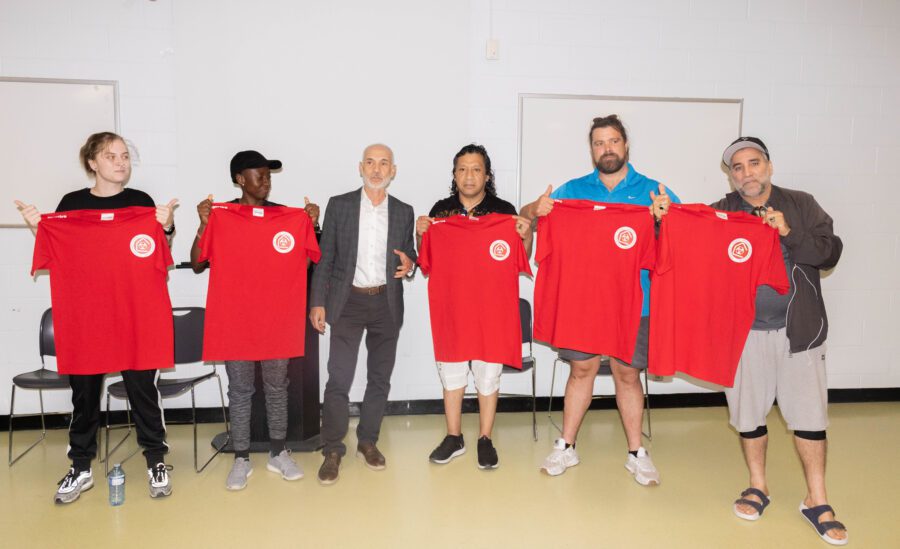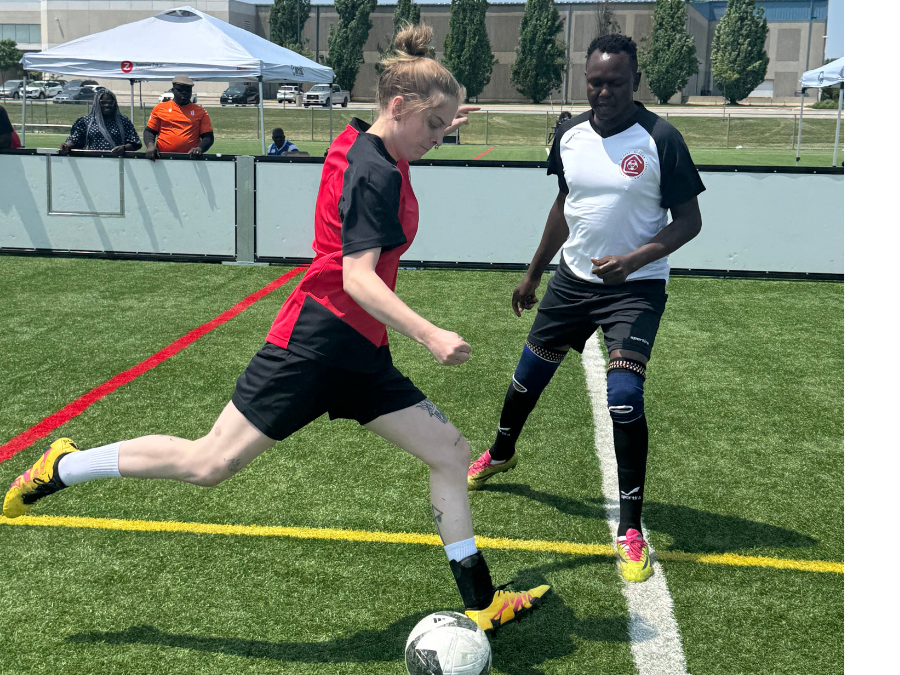Michael Kofi Owusu says his first winter in Calgary was tough.
“The winter is really cold — extreme, something you’ve never experienced,” he says. After arriving in Canada last October from Ghana, Owusu was looking for a distraction from the cold and a way to keep active. He went on Facebook searching for community programming and stumbled upon an ad for a community soccer program hosted at Central United Church.
You may unsubscribe from any of our newsletters at any time.
“The Central United Church was providing for the needy, you know, feeding the hungry, providing winter clothes and all that,” he says. “It goes beyond soccer.”
Owusu is one of many players who belong to the Canadian Street Soccer Association (CSSA), a national organization that uses soccer as a vehicle for social support and empowerment among individuals facing homelessness, mental health challenges, addiction or resettlement. Founded in 2004, CSSA runs inclusive, community-based programs tailored to local needs in cities across Canada, including Calgary, Montreal, Toronto, Brampton and Courtenay, B.C., with plans to expand to Halifax and Manitoba. The organization collaborates with local partners, such as Central United Church in Calgary, to integrate soccer into existing supports for mental health, housing insecurity and social care.
For those involved with CSSA, the association is transforming soccer by redefining the very idea of competition. Unlike traditional soccer leagues that focus on rankings and performance, CSSA champions fitness, mental wellbeing and social connection.
“It depends upon the community you run into,” said Hossam Khedr, the executive director of CSSA, at the tournament’s opening event . “You start to kind of form and modify the game accordingly. So some games will be more competitive than others.”
This philosophy shapes CSSA’s inclusive approach, providing a space focused on personal growth rather than competitive pressures.
More on Broadview:
- Tent cities are growing in Canada — so it the call for meaningful change
- ‘Do I want to be liked, or do I want to speak the Gospel?’
- Documentary follows carpenter’s efforts to support Toronto’s homeless population
On June 15, members of the CSSA met in Mississauga for a national tournament, flying in players from all four provinces where the program operates. Six players in attendance at the tournament will play for Canada’s team at the upcoming Homeless World Cup in Oslo, Norway, from Aug. 23 to 30, joining two others to form an eight-person national team.

Khedr explains that CSSA doesn’t choose players based solely on their soccer skills. “We pick the people who can benefit the most from this journey,” he said. Participants must have experienced homelessness, mental health challenges, addiction recovery, or resettlement within recent years. The focus is particularly on those in transitional stages, such as individuals waiting for housing or employment.
Emma Bellante, nicknamed Zero, from the Brampton team, is one of the six players heading to Oslo.
“This is the first time I’ve ever played soccer and not felt frustration and not been angry,” she said in a panel discussion at the national tournament on June 15.
Despite its successes, CSSA faces ongoing challenges, particularly around funding and visibility.
“I think the biggest challenge we have is advertisements, getting the word out,” said Ed Kiwanuka-Quinlan, CSSA’s director of operations. “These programs save folks, they save lives, [players] become better contributing members of society.”
Michael Kofi Owusu, who’s been with the Calgary team for just over five months, has definitely benefited. “It’s not competition, to be honest. It’s more like therapy,” he says.
***
Paniz Vedavarz is a summer intern at Broadview.














